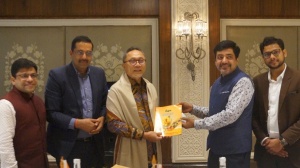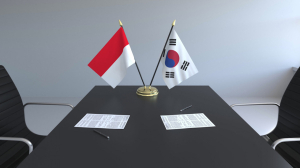Indonesia aims to boost exports to non-traditional markets amid global economic slowdown
The government plans to encourage larger exports to non-traditional markets such as India, Pakistan, and Mexico. Indonesia's exports have traditionally been dominated by China, the United States, and European countries.
Zulkifli Hasan, the Minister of Trade, explained that diversifying exports to non-traditional countries is necessary to counter the global economic slowdown that affects Indonesia's traditional markets.
"If the economy slows down, purchasing power will decrease, commodity prices will fall, all variables will decline. However, we are still looking for new markets," said Zulhas on November 27, 2023.
Zulhas explained that the majority of the 30 countries that are the destination of Indonesia's exports experienced a contraction in value from January to October 2023.
However, there are still six countries that recorded export value growth: Bulgaria, Saudi Arabia, Mexico, Spain, the United Arab Emirates, and Switzerland.
The largest growth in export value from January to October 2023 occurred in Bulgaria, with an approximately 45% year-on-year increase to around US$ 290 million. Meanwhile, the lowest decline in export value was for Pakistan, with an almost 30% decrease to US$ 2.5 billion.
Most of Indonesia's export value is still dominated by four countries: China with US$ 51.16 billion, India with US$ 16.44 billion, the United States with US$ 19.23 billion, and Japan with US$ 15.84 billion.
Statistics Indonesia (BPS) announced that the trade balance surplus for January to October 2023 dropped from US$ 244.06 billion in the same period in 2022 to US$ 214.41 billion. The surplus decreased even though cumulative imports also declined from US$ 198.62 billion to US$ 183.19 billion.
Pudji Ismartini, Deputy for Distribution and Services Statistics, noted that Indonesia had a large trade surplus with India, the United States, and the Philippines last month, each amounting to US$ 1.45 billion, US$ 1.12 billion, and US$ 905 million, respectively.
On the other hand, the largest trade deficit last month was recorded with Australia, Thailand, and Brazil, amounting to US$ 408 million, US$ 322 million, and US$ 243 million, respectively.
Pudji explained that the surplus with India was driven by commodities such as mineral fuels, metal ores, fats, and vegetable/animal oils.
"The surplus with the US was contributed by commodities such as machinery and electrical equipment, footwear, as well as fats and animal/vegetable oils," she said.
The trade deficit with Australia was contributed by commodities such as mineral fuels, metal ores, and sugar.
Already have an account? Sign In
-
Start reading
Freemium
-
Monthly Subscription
30% OFF$26.03
$37.19/MonthCancel anytime
This offer is open to all new subscribers!
Subscribe now -
Yearly Subscription
33% OFF$228.13
$340.5/YearCancel anytime
This offer is open to all new subscribers!
Subscribe now






